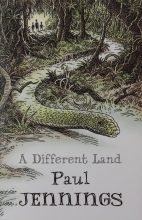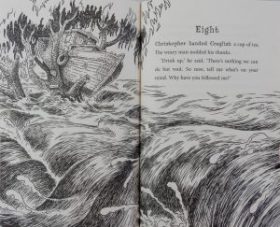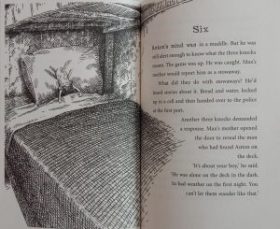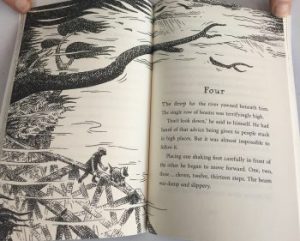
A Different Land
Paul Jennings, illustrated by Geoff Kelly
Old Barn Books
We’ve had A Different Dog and A Different Boy, and now it’s a land that’s different. The land in question is in a rainforest location, travelled to by Christopher, his mum and his friend Anton who are fleeing from their war torn home 12,000 miles away.
Of the person they’re expecting to meet them there is no sign, so in the meantime, Christopher sets about rescuing a dog from the path of the train they’ve just left.
Eventually a rather battered vehicle appears from the forest and out steps the driver. Seemingly he’s expecting someone other than the party he finds waiting but then he discovers that the boy’s mother is named Pat. Not quite the ‘bloke’ he’d anticipated but it was she who’d applied for and been given the job at his Last Coach hotel and general store, and he’s far from happy.
Then he learns that Christopher has rescued his dog and his ill temper dissipates somewhat. Crayfish (as he informs them is his name) grants a short reprieve to the three, telling Pat she can help out at the pub for a week, until the next train out is due.
Crayfish is a rough-looking, enigmatic character and his establishment appears anything but inviting especially to Christopher. Why he wonders did Crayfish say his wife Peggy was dead when he overhears talk of him going off to visit her early every Wednesday morning.
So the following Wednesday he decides to confront him and discover the truth.
What ensues is a dangerous battle against the elements and a desperate rescue bid …

Paul Jennings does it again. Totally enthralling and full of nail-biting tension, this twisting-turning short book with its themes of displacement, love, loss, grief and integrating into a new community, and steamy, tropical illustrations by Geoff Kelly, will likely be devoured in a single sitting, leaving your head spinning and your heart in your mouth.




